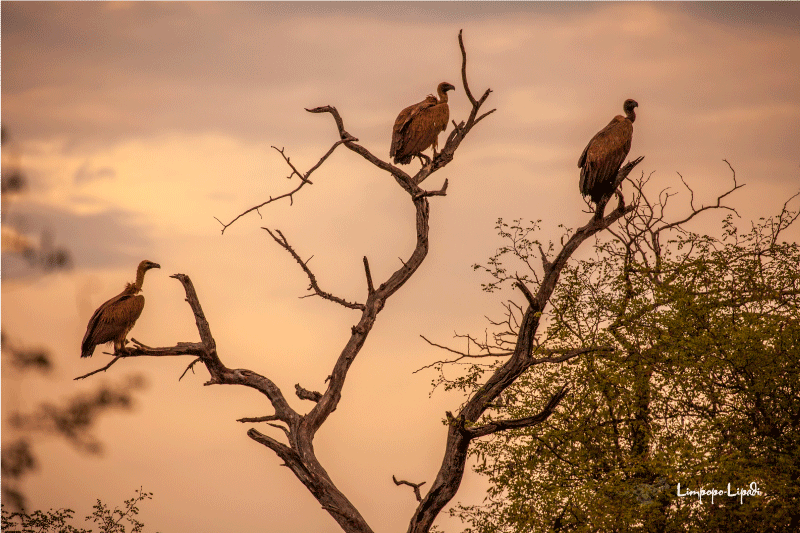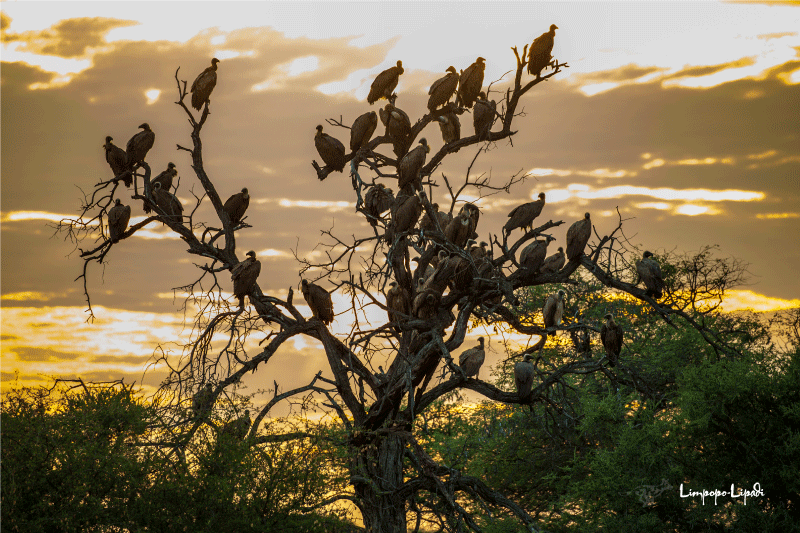Limpopo-Lipadi’s Operations Manager, Duane, writes about the importance of keystone species, like vultures, in our ecosystems and the role our reserve can play in preserving this vital species:
“It is often the case in modern-day nature conservation that iconic animals, especially the cute and cuddly or majestic ones, get the lion’s share of attention (pardon the pun). What a lot of people don’t seem to understand is that ecosystems will still function if you remove Lions, or Elephants or Rhinos from the ecosystem. However, ecosystems will fail if you remove scavengers, especially vultures, from that same ecosystem. Vultures are a keystone species. What’s that? Well, you’ve seen a keystone in an arch, right? It is just one stone compared to all the others in the arch. It doesn’t even bear a lot of loads and yet, if you remove it, the arch will likely collapse. Similarly, in ecology, a keystone species plays a very important role in keeping the balance in the ecosystem. It might not be a very big species or there may not be very many of them, but if you remove a keystone species, an ecosystem will collapse.

There are several reasons why vultures have been faltering, but the most critical factors remain loss of habitat, wrongful persecution, poisoning, and changes in farming practices. Specifically, the use of the drug diclofenac has had a major impact on vulture populations in Africa and India. When vulture populations crashed in India because they were feeding on the remains of animals that were treated with the drug diclofenac, the impacts nearly caused a public health catastrophe. The feral dog population leaped from 7 million to 29 million animals over an 11-year period and caused an additional 38,5 million dog bites. Because of these bites, it’s believed that deaths from rabies increased by nearly 50 000 in that time, costing the Indian government $34 billion to fight the spread of the disease. The importance of these incredible birds is only truly felt when they suddenly disappear from an ecosystem.

Early in September, I was contacted by shareholder Walter Tingle, who suggested that Limpopo-Lipadi PGWR must join a new initiative, spearheaded by Birdlife SA, called the Vulture Safe Zone initiative. I absolutely agreed, and got the ball rolling by contacting Dr Glyn Maude of Raptors Botswana, who is leading this initiative in Botswana, along with the Endangered Wildlife Trust (EWT). Dr Maude visited Limpopo-Lipadi during the first week of October to do an assessment of the reserve, and by all accounts described Limpopo-Lipadi as “setting the bar very high” for other reserves in Botswana, who will join this initiative in the future.
With the exception of the Botswana Power Corporation powerlines that run through the reserve, we scored nearly 100% on the criteria to be considered a Vulture Safe Zone, and reasonably soon we will sign a memorandum of understanding to be included in this initiative, which will make Limpopo-Lipadi PGWR the first Wildlife reserve in Botswana to qualify as a Vulture Safe Zone.”
